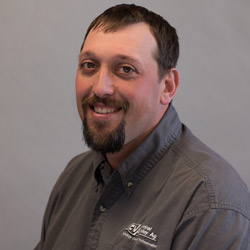Source: Central Valley Ag
Every year at this time, I know that you take on an operational focus. I do the exact same thing. But, while we are worried about the business at hand, you know, how full is bin 3? What is the moisture on the corn on the NW quarter? How many bushels have to go to the elevator? And so on, there is a lot of research coming to a culmination. The starter trials, the variety, and hybrid comparisons. But I know many of you are also trying to use specialty products on your operation. Biologicals, inhibitors, and many other products are seeing the culmination of a growing season. And while we are operationally focused, there is a wealth of data streaming into out monitors to feed a winter worth of study and decision making.
You might expect me to continue down the path and talk about the importance of harvest monitors and data. Instead, I am going to take a left turn and talk about specialty products.
Every year as we comb through the data from the season, we get to evaluate the success and the failures. All too often, however, we look at the results of plot data in the wrong way. In college, when there was a class that was not going the way that we wanted, we would consider changing it from a graded class, to pass/fail. What that meant in simple terms was we were confident in our ability to pass the course, but not to do so without some significant difficulty. So instead, we decided to bypass some of the pressure and declare that we wouldn’t judge each chapter, each homework assignment, and each test on its own merit, but instead, put a blanket over it and judge it as a whole body of work.
All too often, as we judge the use of specialty products on our farm, we look at them in the same manner, as a pass/fail judgment, when in fact that just smoothes out the data. For argument's sake, let’s look at a product that minimizes Phosphorus fertilizer fixation. Without getting into soil chemistry, I can tell you that there are two cases when phosphorus availability becomes a big problem for us in real-world conditions, and that is when our pH gets too low, or our pH gets too high. In both of these instances, phosphorus is less readily available to plants because of chemical forces that occur in the soil.
So imagine that we apply a product to our Phosphorus fertilizer across the entire field to deal with this issue, but on any given field, not every acre will have a severe problem of this type. That means that if we judge the field as pass/fail, it probably fails and we dismiss the value of the Phosphorus fertilizer fixation product. But if we judged every acre separately, we would have acres were this product failed to pay for itself, acres where there was a modest benefit, and acres it was a home run. If we look at each acre or even portions of an acre on its own merit, the product is no longer a fail, but a “fiscal no-brainer.”
That my friend is the beauty of the age that we live in today. With the monitors we have on our harvest equipment, the intensive soil sampling we do, the remote images, and a host of other tools at our disposal, we can measure the merits of these products not just as a whole, but as their own microclimate as well. That's only part of the equation. We also must flip the switch on the application of this group of products as well. Instead of mixing these products into a tank full of starter, or a bin of fertilizer, we need to use the technology at hand to utilize it better.
Putting a small tank on a planter and letting the display we already have control another product with a prescription map is relatively simple and inexpensive. Adding a system like a Raven Sidekick and injecting a product while you are planting or spraying doesn’t cost much or add a lot of complexity. Heck, even taking the bin of variable rate Phosphorus fertilizer that we were going to use, and splitting it into two bins and treating one for the “challenging” acre are all within our grasp.
So as we harvest our fields and evaluate our products over the coming weeks and months, look deeper at the data. That is what our ACS team is here to help you do. Look for the opportunities to take a small win and turn it into a major victory next year using one of the hardware systems that our ACS Equipment team specializes in. And at the end of the day pass/fail is irrelevant because we stacked the homework and the tests in our favor.



![[Technology Corner] Discussing AI’s Potential Impact on Service & Support](https://www.precisionfarmingdealer.com/ext/resources/2025/04/11/Discussing-AIs-Potential-Impact-on-Service--Support.png?height=290&t=1744385717&width=400)


